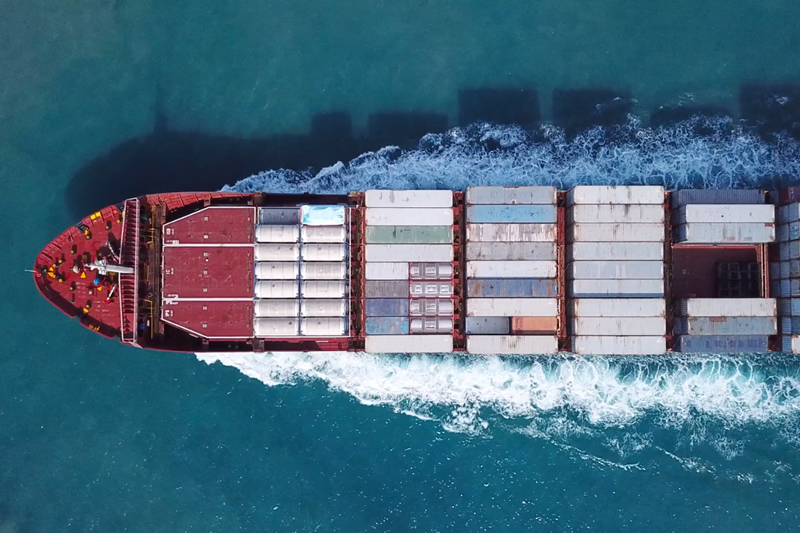Shipping Emissions CCS Trial Deemed A Success
25
A UK-based developer of carbon capture solutions has completed a successful trial of its carbon looping carbon capture technology on a commercial container ship, the Sounion Trader, owned by Lomar. Following this achievement, the company now aims to scale up the technology, with plans to initiate commercial operations by 2025.

Seabound's system has the potential to capture up to 95% of a ship's CO2 emissions, converting them into solid calcium carbonate pebbles for reuse or sale upon unloading at port. Securing US$1.5 million in grant funding from the UK government's Clean Maritime Demonstration Competition Round 3, Seabound and Lomar facilitated part of the pilot project.
Installed on a 3200 TEU container ship, Seabound's compact carbon capture system demonstrated an impressive efficiency, capturing approximately 80% of CO2 and around 90% of sulfur emissions during the test. The Sounion Trader, a 240-meter-long container ship, underwent the trial in the Persian Gulf, showcasing one of the few ships actively working to reduce their carbon footprint by capturing and storing CO2 emissions onboard. However, accommodating large quantities of CO2 poses a challenge for shipping companies, considering the energy and space trade-offs with regular cargo.
During the trial, the prototype system successfully captured 1 tonne of CO2 per day. The Seabound team installed the system at a shipyard in Turkey and spent two months onboard the vessel, conducting tests to enhance carbon capture efficiency, which eventually reached 78%, with sulfur capture efficiency exceeding 90%.
With the pilot concluded, Seabound shifts its focus to developing full-scale carbon capture systems for commercial deployment starting from 2025. The prototype system, which underwent prior land-based trials, was installed on the vessel along with a container of calcium oxide, facilitating the conversion of CO2 into limestone for storage.
Following positive outcomes, the system has been disassembled and returned to Seabound's facilities in north London, preparing for a larger-scale trial. However, the challenge for all maritime carbon capture solutions remains the need for effective CO2 storage, whether for reuse, incorporation into larger transport systems, or sequestration. The volume of storage space is a critical factor determining the feasibility of CO2 capture solutions.
The landscape of carbon capture storage and emissions management/monitoring is changing rapidly both onshore and offshore.
#protea #emissions #monitoring #cems #ftir #gas #analysers #shipping #marine #carbon #capture
Other Articles
Carbon Capture Utilisation & Storage (CCUS) In 2026
16
Global Underground CO2 Storage Data Offers Hope Amid Rising Emissions
01
IMO Postpones Adoption Of Global Net-Zero Shipping Framework
04
Pioneering Carbon Capture Projects Ready For Construction
03
Methanol & Ammonia Deemed Ready As Zero-Emission Shipping Fuels
01
Carbon Capture Storage Reaching A Turning Point In Decarbonisation
13
CCS To Capture 15% Of Shipboard Carbon Emissions By 2050
29
Global Shipping Industry Struggles To Navigate Net Zero Transition
21
Carbon Capture Surges as Economics Policy & Industry Demand Align
14
GHG Emissions At Ports On The Rise Despite Initiatives
07
